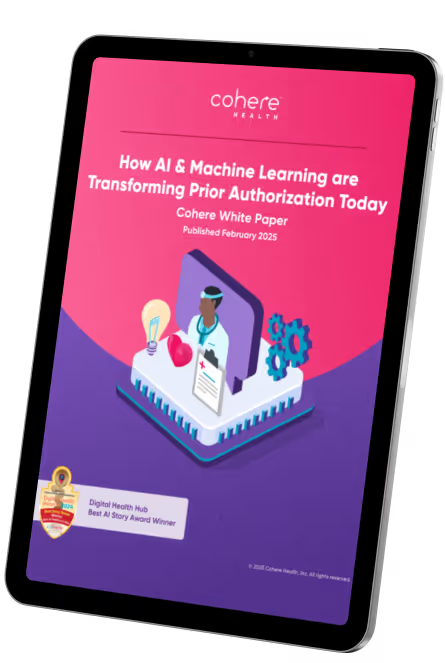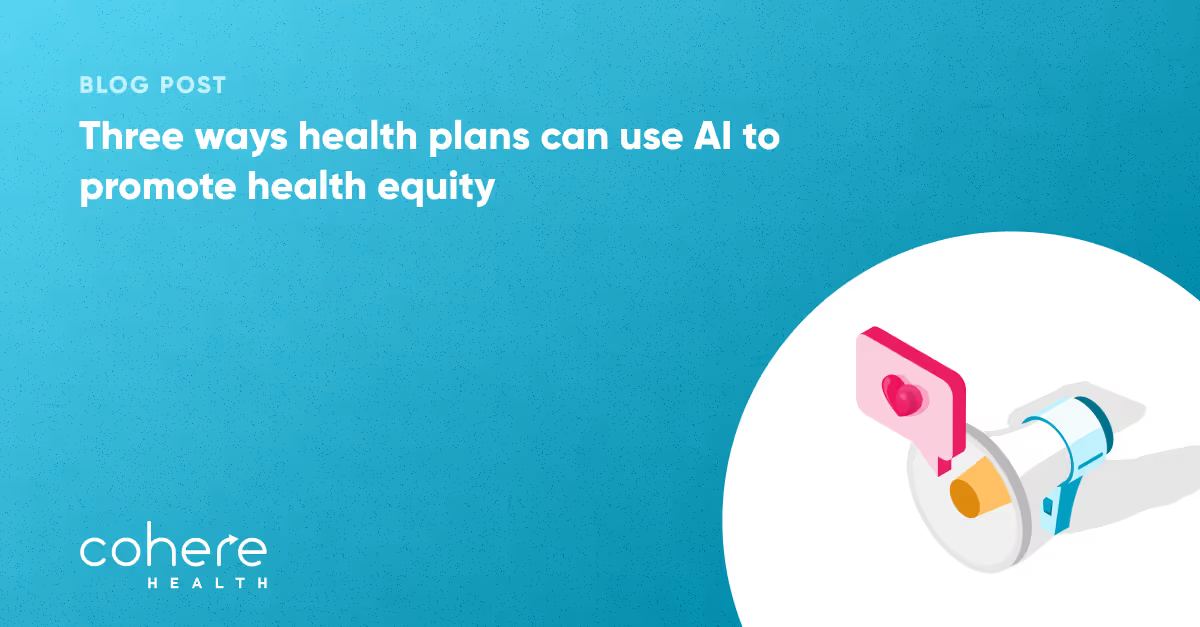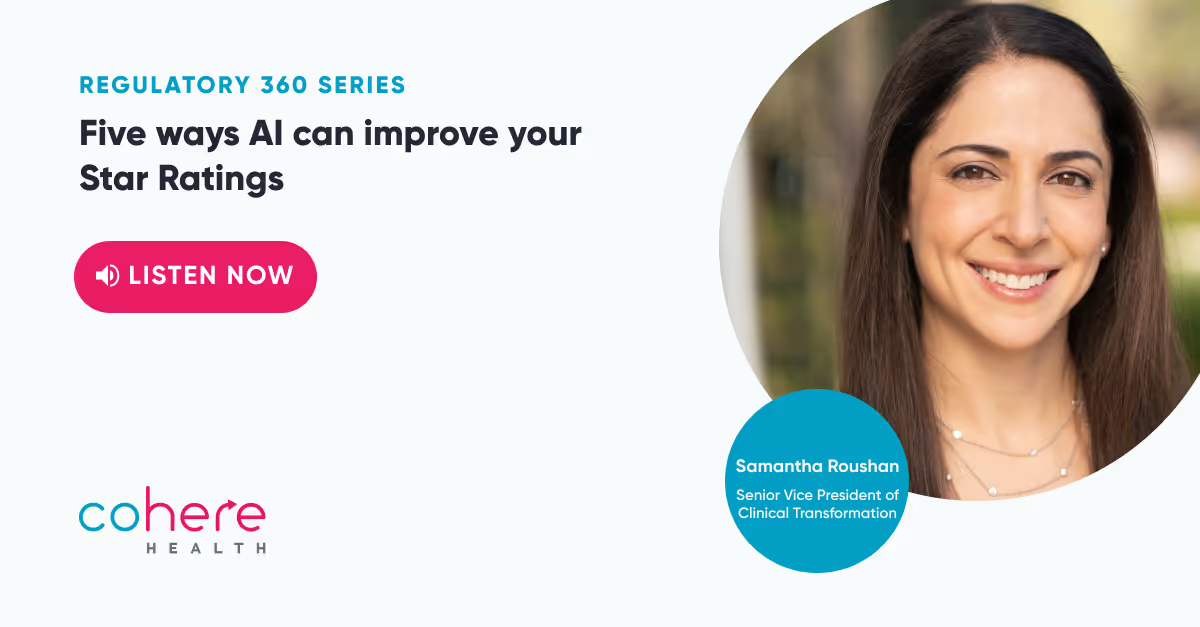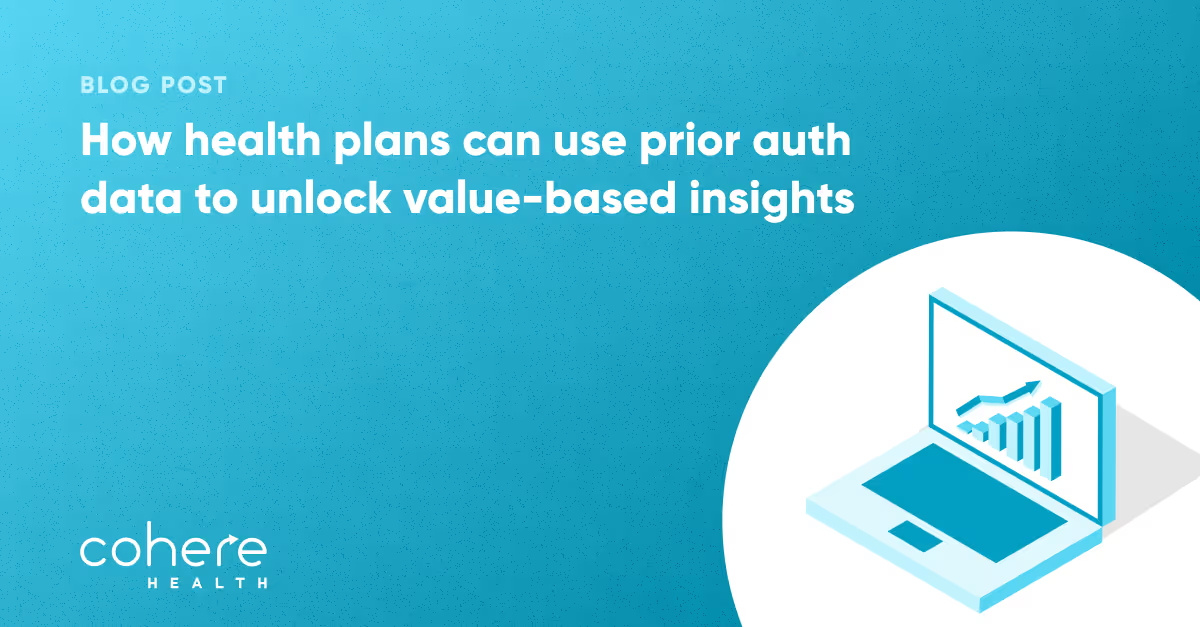Seven ways AI improves care quality with predictive analytics
Published:
October 13, 2023
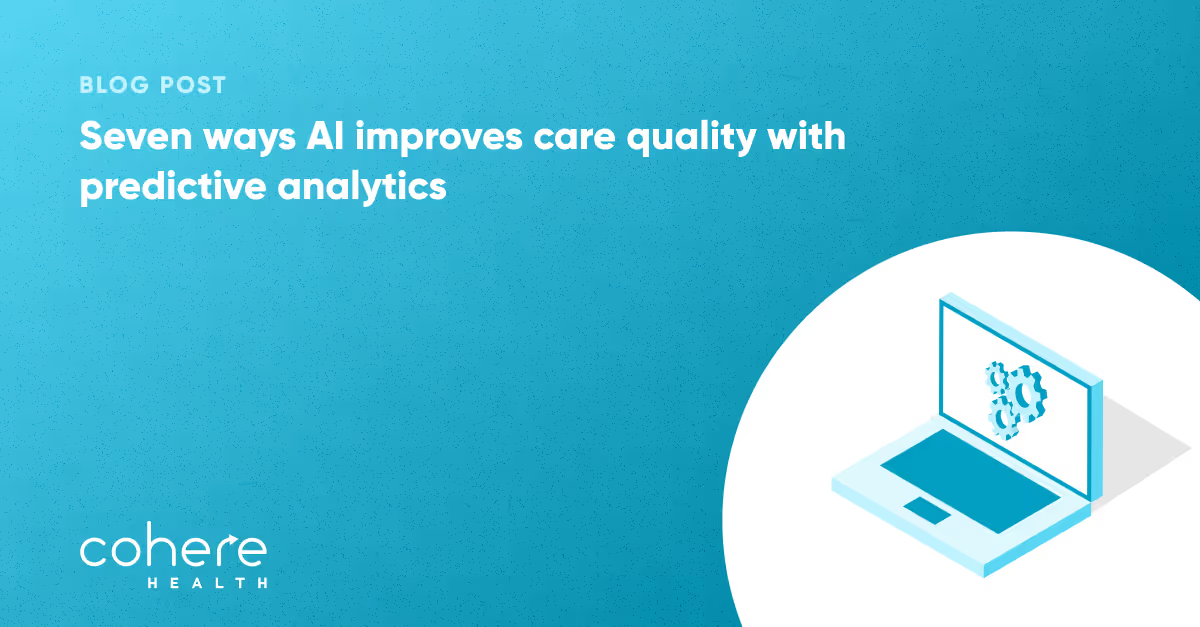
Intelligent prior authorization is taking over utilization management as health plans are eager to comply with state and federal regulations, particularly around interoperability and accountability. While fulfilling regulatory compliance, health plans can use AI-powered predictive analytics and a strong clinical intelligence library to drive program improvements and enhance care quality.
Recent regulations push health plans to bolster interoperability and accountability infrastructures
Federal regulatory bodies, like The Centers for Medicare and Medicaid (CMS) are highly concerned with the burden of prior authorization. With the majority of prior authorization conducted via fax, CMS posits that the switch to electronic prior authorization could save $454 million a year in administrative spending.
Two proposed federal regulations about interoperability have received recent attention for placing health plans in an interesting predicament. The Advancing Interoperability and Improving Prior Authorization Processes Proposed Rule (CMS-0057-P) includes provisions mandating electronic prior authorization through Health Level 7 (HL7) FHIR-based APIs; while the Standards for Health Care Attachments (CMS-0053-P), which requires all health plans under the HIPAA regulatory pathway to use a combination of HL7 standards and the X12 standard. A group of healthcare organizations drafted a letter to CMS Administrator urging the institution to clear up these conflicting standards. While neither rule is final, it is clear that health plans will likely need to implement digital infrastructures soon. As a highly innovative company, Cohere has been encouraging the adoption of DaVinci standards with its health plan partners since its founding.
While CMS regulations may only affect a discrete line of business, health plans can use intelligent prior authorization’s predictive analytics to better manage the prior authorization list for commercial lines of business as well. Sophisticated solutions capable of isolating and analyzing data for different lines of business adds an additional layer of value for health plans.
Our analytics-driven solutions not only automate and streamline manual prior authorization processes to achieve regulatory compliance, but also drive higher-quality patient care. Cohere uses prior authorization transactions as a lever, making the most of health plan data, to improve the entire care journey. Cohere’s innovative approach relies on predictive analytics, applying artificial intelligence (AI) to large data sets and leveraging evidence-based clinical expertise.

Seven innovations that leverage health plan data to improve care quality
Health plans are starting to use AI and machine learning to leverage the wealth of data collected from patient profiles, prior authorization transactions, and claims data to bring longitudinal context to transactions and go beyond traditional UM to drive better outcomes. Here are seven ways this is accomplished:
- Trend management: On-going qualitative and data-driven ideation, investigation, and validation of new opportunities for clinical programs improve clinical quality and outcomes while reducing cost.
- PAL advisory: Prior authorization list (PAL) recommendations compare code benchmarks relative to peers in real-time to optimize utilization management and decrease physician abrasion.
- Care choice guidance: Highly impactful, behavioral interventions, called nudges, deployed before the service request proactively improve outcomes and lower the total cost of care.
- Policy optimization: Actionable policy insights are leveraged to build more comprehensive clinical programs that address patients’ total cost of care.
- Provider green lighting: Real-time provider-specific analytics ease prior authorization process for high value providers, to reduce physician abrasion.
- Abuse detection: Real-time, advanced analytics inform productive interventions with under-performing providers, to reduce care variation.
- Early trend signal intelligence: Analysis of service-, market-, and provider-specific utilization trends enable proactive process changes to avoid unnecessary utilization.
Armed with an advanced, real-time application of artificial intelligence to data sets and of evidence-based clinical intelligence, health plans can use intelligent prior authorization to improve patient care and quality, enhance patient and physician experiences, reduce care variation, and even optimize their utilization management.
Available For Download
Stay ahead with expert insights on transforming utilization management and payment integrity—delivered straight to your inbox.

